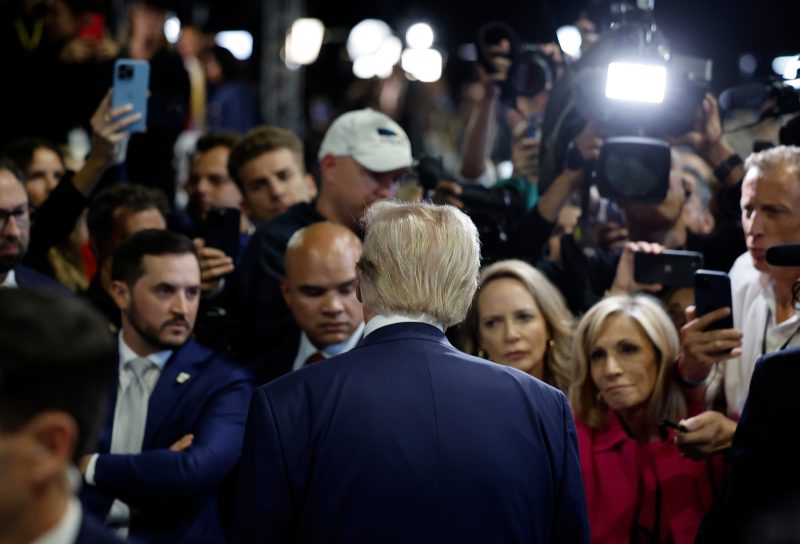In the wake of President Trump’s recent debate performance against Joe Biden, Congressional Republicans have found themselves in a precarious position. The debate, characterized by President Trump’s brash interruptions and dismissive attitude, has left many Republicans scrambling to distance themselves from his behavior. While some have chosen to stand by the President, others are navigating a delicate balancing act in an attempt to protect their own political fortunes.
One key strategy that Congressional Republicans have employed to sidestep the fallout from the debate is to remain mostly silent on the issue. By avoiding direct comment on President Trump’s conduct during the debate, these Republicans hope to evade potential backlash from constituents who may have been turned off by the President’s behavior. This reluctance to engage in public criticism of the President reflects a broader trend within the Republican Party, where loyalty to Trump still holds sway for many.
However, this silent strategy also comes with risks. By failing to condemn Trump’s behavior during the debate, some Republicans may be perceived as complicit in his actions. This could dampen enthusiasm among certain segments of the electorate and make it harder for these lawmakers to distance themselves from the President in the future. As the November election draws closer, the pressure on Congressional Republicans to address Trump’s debate performance will only continue to mount.
Others Republicans have taken a more proactive approach, openly criticizing the President’s behavior and attempting to distance themselves from his contentious debate style. These lawmakers argue that Trump’s behavior was unhelpful and did little to advance the Republican cause. By publicly voicing their disapproval, they hope to signal to voters that they are not in lockstep with the President and are willing to hold him accountable for his actions.
However, openly criticizing the President carries its own set of risks for Congressional Republicans. Trump’s base remains a powerful force within the Republican Party, and dissenting voices can quickly find themselves isolated and targeted for retribution. By challenging Trump publicly, these lawmakers risk alienating their own supporters and facing backlash from within their own party.
In the end, Congressional Republicans find themselves caught between a rock and a hard place in the aftermath of Trump’s debate performance. Whether they choose to remain silent or speak out against the President, each decision comes with its own set of consequences. As the election looms large, these lawmakers will need to carefully navigate the turbulent waters of the Trump era in order to secure their political futures.


























